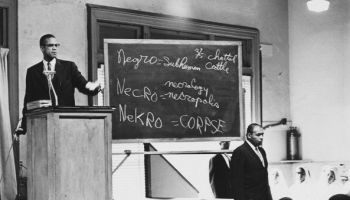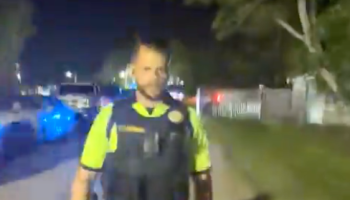I have been actively involved in the fight for Heather Ellis, the 24-year old school teacher who faced up to 15-years in prison for cutting line at a local Wal-Mart. Although Heather has now reached a plea deal with prosecutors over her arrest, there are still questions that need to be answered. No, she was not charged with cutting in line, but it was the cashier’s reaction to the alleged line cut which led to the relevant sequence of events. Had the cashier been more professional and not refused to serve Heather, none of this would have happened (You hear that Walmart? Perhaps that’s why your attorneys are telling you to remain silent).
I have five simple questions about the trial of Heather Ellis:
1) If “no one was seriously injured,” why was she facing up to 15-years in prison?
In the opening statements of the trial, the prosecutor in the case, Morley Swingle (the dandy fellow with the Confederate flag on the cover of his book) stated that “There was no serious injury, but it did hurt,” when referring to the alleged assaults committed by Ms. Ellis. If no one was seriously injured, does that constitute a Class-C felony? This statement was quite telling when it comes to understanding the style of justice being administered in the Southeast Missouri area (which is why we are sending our reports to the Justice Department after the trial is over). Given that Ellis appears to have been the only person to go to the hospital after she allegedly beat down all of these great big men, it would seem to me that perhaps she might be the one who is able to file an assault charge against the officers. Additionally, the defense attorney on the case, Scott Rosenblum, presented evidence in court of there being blood in Heather Ellis’ jacket pocket from the night of the incident. This would be consistent with her claim to the doctor the next day that she was assaulted by the police.
2) Why did the prosecutor hype up the videotape? Was he lying?
When Stephen Sokoloff, the original prosecutor on the case, first felt the light shining on his little town, he became defensive. As proudly as he could, Sokoloff claimed that the release of the video of the incident would show that Ms. Ellis is not as innocent as she claims to be. The video has now been released and shown to the world. Anyone in their right mind who watched the Walmart surveillance video taken the night of Heather Ellis’ arrest would have been sorely disappointed. There was almost nothing on the video, other than a clip of Heather moving someone’s items off the conveyor belt (not punishable with prison time), and her walking out of the store with the officers following her. The more the facts unfold in this case, the more it appears that there may have been an assault and cover-up. My father was a cop for 25-years, so I know that officers stick together, especially when they think they can get away with it. The Kennett police have some explaining to do.
3) If Heather was the aggressor, why is she seen on the videotape leaving the store?
The videotape shows Heather Ellis leaving the store with her cousin, with an army of police officers aggressively pursuing her. This contradicts the officers’ account in a couple of ways: First, it does not seem to support the claim that Heather refused to leave the store, since she is clearly walking out the door on her own free will. Secondly, it doesn’t support the idea that she was determined to “beat the ass” of the police officers (as some have claimed), since it would seem that she wouldn’t say, “follow me outside first so I can beat your ass.” I would imagine that anyone determined to “beat the officers’ asses” would have done so right there at the register.
4) How can you go to trial in less than a week on a case that was given to you by someone in an entirely different office?
Dr. Christopher Metzler at Georgetown University, one of the most respected attorneys in the nation, questions the idea that a prosecutor can come from another town, take over a case and be ready for trial in just one week. According to seasoned lawyers I’ve spoken with, the only way this would be possible is if someone else were guiding the new prosecutor behind the scenes. I wonder what Stephen Sokoloff, the original prosecutor who recused himself from the case, has been up to this week? Swingle could be getting some influential back up.
5) Why has this case been made to be about Heather’s cursing and allegedly “lewd behavior”?
I find it quite interesting that as this woman faces up to 15-years in prison for a minor incident, everyone is focused on the fact that she allegedly cursed at the officers and the cashier. The question, to me, is not whether or not she cursed. The question is whether or not she deserves 15-years in prison for getting angry. I am not sure if Heather Ellis was mean to anyone that night, but in a fair justice system, the punishment must fit the crime. So, to those who feel that she should have simply behaved herself, take a second to realize just how silly you sound. Cursing or getting angry does not warrant the theft of a young person’s future. If that were the case, the George Bush’s of the world would have gone to prison a long time ago.
As I mentioned at the start of this article, Heather has reached a plea deal. But the freedom of Heather Ellis does not negate the effect of overzealous prosecution of people of color. Heather’s case is not the end of anything, it is actually the beginning.
Dr. Boyce Watkins is a Professor at Syracuse University and founder of the Your Black World Coalition. For more information, please visit www.BoyceWatkins.com.
















